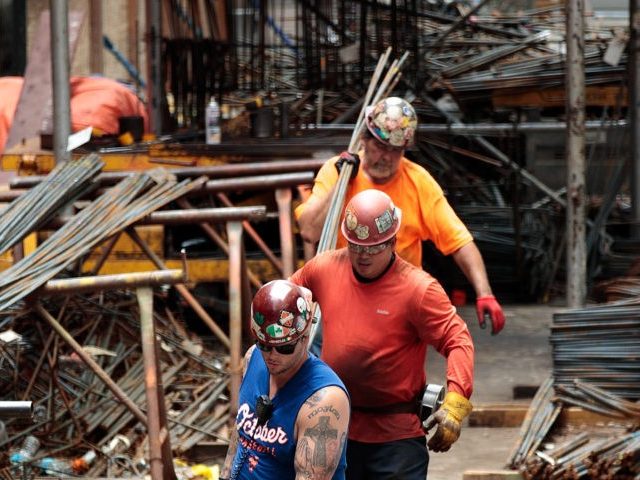American employers from Disney to office cleaners to builders of giant office complexes are preparing for the loss of workers from Haiti and Central America long ago given temporary permission to live and work in the United States.
The Trump administration said Monday that it would end this temporary status for around 200,000 foreign workers from El Salvador. As a result, they would be required to leave by September 2019. More than 45,000 Haitians have been put on notice that they will have to leave by July 2019. Around 57,000 Hondurans are still waiting to receive news from the administration.
All these foreign workers were originally granted permission to live and work in the U.S. on a temporary basis, typically as a humanitarian measure following wars or natural disasters. Although these programs granting residency are supposed to end when conditions in their home countries expired, they have often been extended by past presidents of both parties–sometimes for decades.
Many American businesses are already crying foul, concerned that the loss of foreign workers will force them to raise wages to make jobs more attractive to native workers. Some are even threatening to shrink their businesses rather than raise wages, a classic sign of uncompetitive behavior that economists call “monopsonistic.” Often, businesses opposed to the Trump administration’s position have made a variant of the old argument that theirs are “jobs Americans won’t do.”
“There are no Americans out there to take the jobs,” Mark Drury, a vice president at Shapiro & Duncan, a Washington-area plumbing, heating and cooling firm, told the New York Times.
That seems unlikley. The official unemployment rate in Washington, D.C. is 6.4 percent, representing around 25.5 thousand people who are actively seeking employment. The construction sector employed around 14.6 thousand workers in November 2017, around the same number it did a year prior and 1,000 fewer than it did in 2015.
But if there are tens of thousands of workers living in the area, why does Drury think that are “no Americans out there to take the jobs?”
“The company and its competitors have resorted to poaching each other’s project managers, engineers, welders and plumbers,” the New York Times reports.
In other words, for a number of job categories, the company can no longer simply pluck employees from a standing reserve of unemployed skilled workers. It now has to bid against other employers in a competitive job market. It has to offer better terms of employment to do this: better wages, better jobs, and so on. But the New York Times itself appears to regard this as a bit dirty. This is not just “hiring away from competitors” it is “poaching,” which implies a trespass on another person’s property to hunt without permission.
Don’t blame Shapiro & Duncan. By all reports the Shapiro’s are fine people and relatively decent to work for. They have just become accustomed to operating their business in an environment where foreign workers and high unemployment kept labor cheap and made hiring easy. No poaching necessary.
Others are feeling the same pressure.
“If you get rid of 26 percent of my employees, I guess I’m going to have to terminate some of the contracts,” said Victor Moran, 52, the chief executive of Total Quality, a janitorial services company in the Washington area, tells the Times.
That’s evidence of what economists call monopsonistic behavior. Monopsony power is sort of the photo negative of the more familiar concept of monopoly power, where a firm has the ability to charge higher pri9ces for a product due to lack of competition. A monoposony has the ability to pay lower prices for workers or raw materials without losing its workers to competiting employers.
When market conditions would ordinarily compel an employer to pay higher wages, perhaps because of a shortage of workers, a monopsonistic employer will often instead choose to just employ fewer workers. What it looses in ouput and revenue–“I’m going to have to terminate some of the contracts”–it more than makes up for in lower costs. That comes at a social cost, of course, as society is worse off because of lower overall output.
This is not just about small businesses, of course. Disney employs some 500 “protected” Hatians, the Times reports.
Perhaps not surprisingly, a lot of workers with Temporary Protected Status are concentrated around Washington, D.C., in Virginia and Maryland. Those workers do not, of course, influence the wages of lawmakers, think tank scholars, or lobbyists. They likely reduce the cost of services to those people, however.
The temporary workers are also concentrated in California, Texas, Florida and New York.

COMMENTS
Please let us know if you're having issues with commenting.